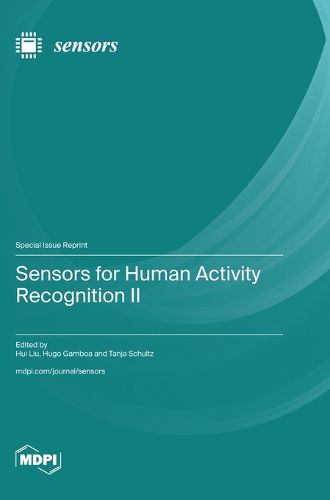Readings Newsletter
Become a Readings Member to make your shopping experience even easier.
Sign in or sign up for free!
You’re not far away from qualifying for FREE standard shipping within Australia
You’ve qualified for FREE standard shipping within Australia
The cart is loading…






This title is printed to order. This book may have been self-published. If so, we cannot guarantee the quality of the content. In the main most books will have gone through the editing process however some may not. We therefore suggest that you be aware of this before ordering this book. If in doubt check either the author or publisher’s details as we are unable to accept any returns unless they are faulty. Please contact us if you have any questions.
Human activity recognition (HAR) has been playing an increasingly important role in the digital age. High-quality sensory observations applicable to recognizing users' activities, whether through external or internal (wearable) sensing technology, are inseparable from sensors' sophisticated design and appropriate application. Having been studied and verified adequately, traditional sensors suitable for human activity recognition-such as external sensors for smart homes, optical sensors like cameras for capturing video signals, and bioelectrical and biomechanical sensors for wearable applications-continue to be researched in depth for more effective and efficient usage. Here, the number of specific areas of life facilitated by sensor-based HAR has been continuously increasing. Meanwhile, innovative sensor research for HAR is also very active in the academic community, including brand new types of sensors appropriate for HAR, new designs and applications of the abovementioned traditional sensors, and the introduction of non-traditional HAR-related sensor types into HAR tasks, among other research avenues. The Special Issue Sensors for Human Activity Recognition has received a total of 30 submissions so far, and from these, this new edition will publish 10 academic articles. From hardware to software, from pipelines to applications, from handcrafted features to domain generalization, and from shallow learning to deep and even large language models, the collected literature will provide readers in related fields with state-of-the-art approaches to many challenges in HAR.
$9.00 standard shipping within Australia
FREE standard shipping within Australia for orders over $100.00
Express & International shipping calculated at checkout
This title is printed to order. This book may have been self-published. If so, we cannot guarantee the quality of the content. In the main most books will have gone through the editing process however some may not. We therefore suggest that you be aware of this before ordering this book. If in doubt check either the author or publisher’s details as we are unable to accept any returns unless they are faulty. Please contact us if you have any questions.
Human activity recognition (HAR) has been playing an increasingly important role in the digital age. High-quality sensory observations applicable to recognizing users' activities, whether through external or internal (wearable) sensing technology, are inseparable from sensors' sophisticated design and appropriate application. Having been studied and verified adequately, traditional sensors suitable for human activity recognition-such as external sensors for smart homes, optical sensors like cameras for capturing video signals, and bioelectrical and biomechanical sensors for wearable applications-continue to be researched in depth for more effective and efficient usage. Here, the number of specific areas of life facilitated by sensor-based HAR has been continuously increasing. Meanwhile, innovative sensor research for HAR is also very active in the academic community, including brand new types of sensors appropriate for HAR, new designs and applications of the abovementioned traditional sensors, and the introduction of non-traditional HAR-related sensor types into HAR tasks, among other research avenues. The Special Issue Sensors for Human Activity Recognition has received a total of 30 submissions so far, and from these, this new edition will publish 10 academic articles. From hardware to software, from pipelines to applications, from handcrafted features to domain generalization, and from shallow learning to deep and even large language models, the collected literature will provide readers in related fields with state-of-the-art approaches to many challenges in HAR.